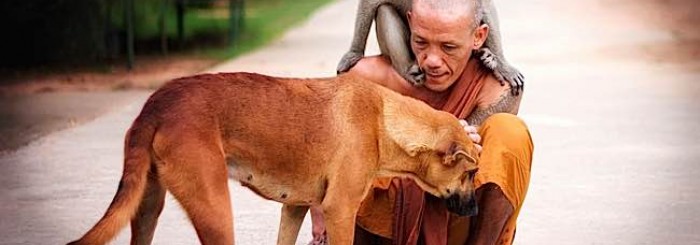One of the first inspirations for beginning “The Beautiful Life” project was based on altruism, and the fact that being kind to others (and by ‘others’ I mean all species) never seems to fail when it comes to ‘return on investment’. Now I clearly don’t mean ‘return on investment’ in business terms and hard cash (!), nor do I mean that we should only be nice to other people and animals in the hope that we get something back in return. The point I’m trying to make is this – being kind to others has been scientifically proven to promote a sense of happiness and wellbeing.
We all need certain fundamental things to exist, and aside from the obvious like oxygen and water, we have other physiological needs like shelter and food. As our letterboxes keep us informed via those lovely brown envelopes that seem to fly through at a rate faster than the speed of light, we live in a capitalistic world; by which I mean, we need bargaining tools with which to secure things like a house, electricity for light and heat, clean water, and so on.
However, we don’t have to live in a world so consumed by money – we can opt out, live a happier life and open ourselves up to the most phenomenal array of opportunities that can provide us with prosperity and security, whilst helping to create a world of goodness – a world that we would be happy to leave behind, safe in the knowledge that there is a sustainable legacy and minimal risk of things like famine (which even for the Western world is a very real risk) and war.
Instigating change can be the result of a Hobbes inspired authoritarian government, a group of people elected by us and to whom we give our blessing to make decisions in terms of broader societal paradigms within which we live, or, wait for it… it can be driven by you and me.
You see, all too often I hear people say, ‘well what difference can I make?’ Well actually, change can be just as impactful whether originating from the top down (government) or bottom up (every day people like you and me) which means that we as individuals can change things for the better. At a really personal level, we can have a huge impact on our families, but that’s just the start. We can also bring about discussion (and even a revolution) within our communities, eventually impacting the entire planet.
So, let’s start at the beginning – how do we initially shape our own micro worlds so that we can begin to change things at a global level through more sustainable behaviour?
Let’s start at a really basic level.
Each of us spends money on things that we really don’t need. We embrace consumerism, which in turn, responds by seducing us with even more bigger and better things that we ‘need’. In the 60’s, our parents and grandparents were exposed to a “keeping up with the Jones’” pressure in society and this has evolved into keeping up with celebrities, reality television and social media. Consumerist overload is destroying our lives and impacting the way in which we control our own destinies. I agree that the digital revolution has dramatically improved human existence in terms of communication, opportunity and knowledge. However, we have become desensitized and too easily make decisions that aren’t necessarily good for us.
The solution… we can start by taking action through altruistically motivated practices.
An “altruistically motivated individual” is also a sustainably oriented person, working to conserve the earth’s natural resources while also caring for his or her fellow species. This type of person will consume moderately through pro-ecological behaviour; by which I mean they will take actions to conserve natural resources (water, soil, air, energy, plants, animals and ecosystems) that become manifested in forms of sustainable practices (reuse, recycling, composting, water and energy conservation, etc.) – and be active in pro-environmental lobbying – reading and discussing environmental problems, pro-ecological design/construction and so on. Enter Wilson’s “biophilia hypothesis” which suggests that humans possess an innate tendency to seek connections with nature and other forms of life.
We can use the principles of effective altruism at a very personal level, making decisions that are better for us (enhancing our happiness!), the planet and our fellow human beings by simply opening up our hearts to help others, and our heads to make sure that our decisions are as effective as possible. Through this we can be confident that we are living our lives in the most productive and fulfilling way possible.
I challenge you, therefore, to find a group of likeminded individuals (be they local, national or global) – your own Altruist Circle – linked to a cause you have a passion for, and arrange to get together with them and make real change happen. Try to do something each week to further your cause, be it a quick Skype with your Circle, sharing social content, helping a neighbour in need or lobbying; and remember, effective altruism seeks to:
Engage in important practices that can help a lot of people or animals
Find neglected areas and niches that aren’t currrently being helped effectively
Make sure that your actions and chosen projects are easy to control and influence so that you can succeed.
Taken from The Beautiful Life 90 Day Journal – http://www.thebeautifullife.co.uk/journal/


